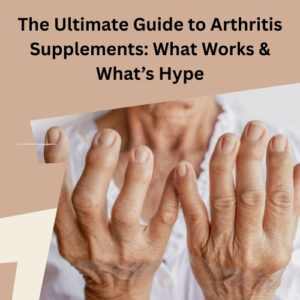
If you live with a persistent burning or tingling sensation in your mouth, you’ll know how distressing and confusing it can be. The discomfort may feel like your tongue, lips or palate have been scalded, yet when you look in the mirror, everything appears normal. This condition is known as Burning Mouth Syndrome (BMS) — and it affects thousands of people, particularly women in midlife.
As a physician specializing in oral medicine, I’ve met many patients who’ve struggled to find relief after being told their tests were normal or that “nothing looks wrong”. But the pain is real. The good news is that research has progressed, and we now understand more about what causes BMS and which treatments work best. In this article, I’ll walk you through the Top Burning Mouth Medication Options for Lasting Relief — from prescription therapies to natural approaches — so you can discuss them confidently with your healthcare professional.
What Causes Burning Mouth Syndrome?
Before we discuss medication, it helps to know why this condition occurs. In many cases, Burning Mouth Syndrome isn’t caused by one single factor but rather a combination of nerve dysfunction, hormonal changes, nutritional deficiencies, or other health conditions.
Primary (Idiopathic) BMS
Primary BMS refers to cases where no obvious local or systemic cause is identified. Research shows that this type often involves abnormal pain processing within the nerves that carry taste and temperature sensations from the mouth to the brain.
Secondary BMS
Secondary BMS results from an identifiable cause. Common examples include:
- Hormonal changes such as menopause
- Vitamin and mineral deficiencies (especially B12, foliate, iron and zinc)
- Oral infections such as thrush (Candida)
- Medication side effects, including some used for blood pressure or anxiety
- Dry mouth (xerostomia) due to reduced saliva
- Dental materials or mouthwashes that irritate the mucosal tissue
Once these underlying issues are addressed, symptoms may improve significantly. However, in many cases, nerve pain remains — and that’s where medication can make a difference.
Why Finding the Right Medication Matters
Burning Mouth Syndrome isn’t life-threatening, but it can deeply affect your quality of life. Eating, speaking, and even sleeping may become uncomfortable. Some people experience anxiety or low mood because of the ongoing pain and uncertainty.
Because the cause varies from person to person, there isn’t one universal treatment. Instead, doctors often take a stepwise approach, starting with identifying and correcting reversible causes, then moving on to medications that target nerve pain and oral discomfort directly.
Let’s explore the main burning mouth medication options currently used and what you might expect from each — including the Top Burning Mouth Medication Options for Lasting Relief based on current research and clinical experience.
Topical Medications
a) Clonazepam (Lozenges or Mouth Rinse)
Clonazepam is a medication typically used for anxiety and seizures, but in low doses, it can help calm overactive nerves in the mouth. Your doctor may prescribe it as a lozenge or a solution to swish and spit.
How it works: It enhances the calming effect of a neurotransmitter called GABA, reducing abnormal nerve firing.
How it’s used: Usually applied two to three times daily, held in the mouth for a minute or two, then spat out (not swallowed).
What to expect: Many patients report reduced burning within a few weeks. Mild drowsiness or dry mouth can occur.
b) Capsaicin Rinse
Capsaicin — the compound that gives chili peppers their heat — can desensitize nerve endings when used in controlled doses. A specially prepared rinse or gel may be used under professional supervision.
Caution: It can cause temporary irritation, so it’s not suitable for everyone. Always use it under a dentist or physician’s guidance.
Systemic Medications (Taken by Mouth)
a) Alpha-Lipoid Acid (ALA)
ALA is an antioxidant that supports nerve health. Some studies show that it may help reduce pain and burning in BMS when taken as a daily supplement (usually 600 mg per day).
You can read more about ALA and other non-drug options in Burning Mouth Syndrome Dietary Supplement, which explores nutritional support in greater detail.
b) Gabapentin or Pregabalin
These are anticonvulsant medications that reduce nerve-related pain. They’re commonly used in neuropathic pain conditions such as post-herpetic neuralgia or diabetic neuropathy and can be effective for BMS.
How they work: They calm the overactive nerve signals that cause burning or tingling sensations.
Possible side effects: Drowsiness, dizziness, or mild swelling. These usually ease as your body adjusts.
c) Low-Dose Antidepressants (Tricyclic’s or SNRIs)
Certain antidepressants such as amitriptyline, nortriptyline, or duloxetine can reduce nerve pain independent of their mood effects. These drugs alter neurotransmitter levels in the brain and spinal cord, reducing pain transmission.
Dosage: Typically starts very low and increases gradually. Relief may take several weeks.
d) Hormone Therapy
For post-menopausal women, declining estrogen may contribute to BMS. In selected cases, hormone replacement therapy (HRT) can help, particularly if symptoms began around menopause. Discuss risks and benefits with your GP or gynecologist before starting.
These medications form the backbone of the Top Burning Mouth Medication Options for Lasting Relief, particularly when nerve pain is the dominant cause of symptoms.
Treating Underlying Causes
Sometimes the best medication is not for the burning itself, but for the issue driving it.
- Antifungal medication: If oral thrush is present.
- Vitamin or mineral supplements: Correcting deficiencies in B12, iron or zinc can relieve symptoms.
- Saliva substitutes or sialagogues: To manage dry mouth.
- Medication review: Some drugs (e.g., ACE inhibitors, antidepressants) can worsen symptoms; adjusting these may help.
Natural and Alternative Options
Many patients ask about natural therapies — especially if they prefer to avoid long-term prescription drugs or have had limited success with conventional approaches.
a) Nutritional Supplements
Nutrient support may help restore nerve health. Besides Alpha-Lipoid Acid, some patients try vitamin B complex, zinc, or omega-3 fatty acids. However, always consult your doctor before starting supplements, as interactions are possible.
b) Herbal and Plant-Based Remedies
There’s growing interest in herbal products with anti-inflammatory and antioxidant properties. For example, chamomile rinses, aloe vera gels, or green tea extracts may soothe oral tissue. Evidence remains limited, but some people find this supportive.
For a broader look at these therapies, explore Burning Mouth Syndrome Natural Treatment, which discusses lifestyle and complementary strategies alongside medical care.
c) All-Natural Blends
Some patients explore multi-ingredient products marketed as All Natural Organic Supplements. While natural doesn’t always mean harmless, some blends containing alpha-lipoic acid, B vitamins, and herbal extracts may help reduce inflammation and nerve sensitivity.
Always choose reputable products and discuss them with your healthcare professional to avoid potential drug interactions.
Psychological and Behavioral Support
Chronic oral pain can take an emotional toll. Studies show that anxiety, stress, and depression may worsen symptoms or make the pain feel more intense. Managing these factors can improve both comfort and overall well-being.
a) Cognitive Behavioral Therapy (CBT)
CBT helps patients recognize and reframe negative thought patterns related to pain. It’s proven effective for several chronic pain conditions, including BMS.
b) Stress Management Techniques
Mindfulness, breathing exercises, gentle yoga, or guided relaxation may help reduce nerve excitability and ease burning sensations.
c) Sleep and Lifestyle Habits
Prioritizing good sleep, staying hydrated, and avoiding alcohol, tobacco, and spicy foods often makes a difference.
Emerging Treatments and What’s New
You may have read about various “new treatments” for BMS online. Some are based on early research but show potential.
a) Low-Level Laser Therapy (LLLT)
This non-invasive treatment uses specific light wavelengths to stimulate healing and reduce nerve pain. Some clinics offer it as an adjunct to medication, and early studies suggest promising results.
b) Repetitive Transracial Magnetic Stimulation (trims)
This is a specialized neurological therapy that uses magnetic fields to alter brain activity involved in pain perception. While still under research, it may offer future hope for resistant cases.
c) Salivary Nerve Growth Factor Studies
Researchers are investigating whether restoring natural nerve growth factors in saliva could help regenerate damaged nerve endings in the mouth.
d) Clonazepam + Alpha-Lipoid Acid Combination
Recent studies indicate that combining a topical agent such as clonazepam with oral antioxidants like ALA may enhance results for patients who respond partially to one therapy alone.
If you’re curious about upcoming innovations, see for updates on ongoing research and practical guidance on integrating new options with your current care.
These experimental approaches may soon expand the Top Burning Mouth Medication Options for Lasting Relief, providing hope for those whose symptoms persist despite standard therapies.
What You Can Do Now
If you’re living with BMS, you’re not alone — and effective relief is possible. Here are key steps you can take:
- Consult a specialist (such as an oral medicine consultant or neurologist) who has experience with BMS.
- Review all current medications with your doctor to rule out drug-induced causes.
- Ask for a full blood test to check for vitamin, mineral, or hormone imbalances.
- Consider topical options first (e.g., clonazepam rinse), as they act directly on affected tissues.
- Discuss systemic medications if topical treatment isn’t sufficient.
- Incorporate lifestyle changes such as stress management and gentle oral care routines.
- Keep a symptom diary — track food, stress levels, and sleep to identify triggers.
Remember, the goal is gradual improvement. Relief often takes a few weeks or months, but consistent treatment and open communication with your doctor can bring meaningful change.
Living Well with Burning Mouth Syndrome
Many people with BMS achieve good control of their symptoms once the right treatment combination is found. You may not need medication forever — some patients are able to taper off gradually once the nerves settle and triggers are managed.
Support groups and online communities can be encouraging places to share experiences and learn coping tips. However, always verify any advice with a qualified clinician before trying new treatments.
With patience and the right medical guidance, you can regain comfort, enjoy food again, and restore confidence in your daily life.
Key Takeaway
Top Burning Mouth Medication Options for Lasting Relief continue to evolve as research deepens our understanding of this challenging condition. Whether you start with topical clonazepam, add an antioxidant supplement like alpha-lipoid acid, or explore new therapies such as laser treatment, the most important step is to work closely with your healthcare team.




